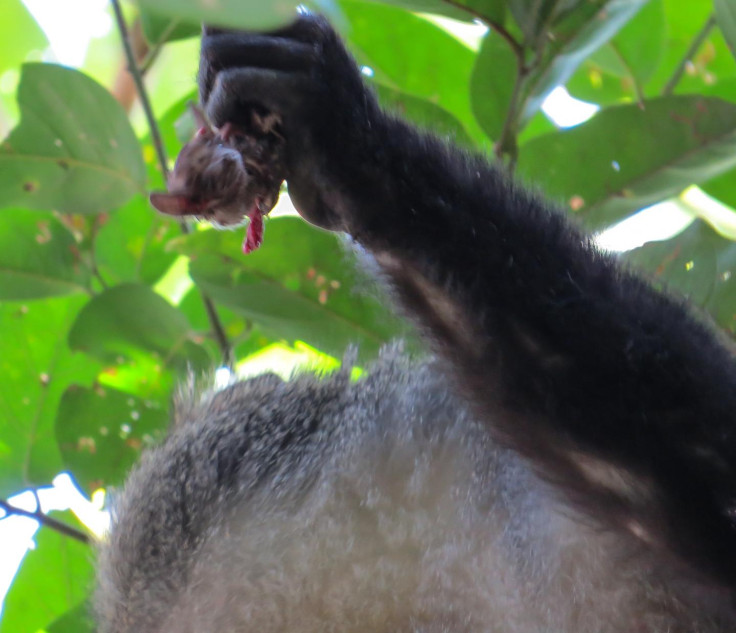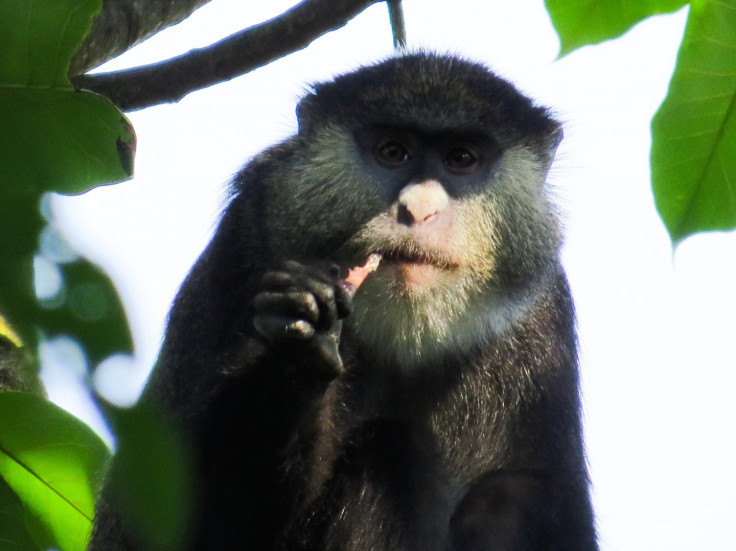Monkeys in Africa feasting on bats filmed for the first time
For the first time, monkeys in Tanzania and Kenya have been filmed and photographed eating bats. Cercopithecus monkeys were observed preying on two different species of bats in Gombe National Park – a finding that raises concerns of disease transmission pathways.
Researchers from the Florida Atlantic University and Columbia University in New York saw monkeys handling and eating bat, sometimes having prolonged contact with the bat carcass. They spent between 10 minutes and an hour eating a single bat. On one occasion, they saw a monkey eating the bones of the bat too. Documenting their findings in the journal EcoHealth, researchers say this is the first time such behaviour has been photographed and filmed.
Kate Detwiler, co-author of the study, said: "Our study found that Cercopithecus monkeys opportunistically preyed on bats not only in Gombe, but also in the Kakamega Forest in Kenya. The behaviour that we observed and the persistence of these monkeys to capture their prey indicate that bats are desirable items in their food repertoire."

Elizabeth Tapanes, first author of the study, added: "In two of the events at the Kakamega Forest in Kenya, a monkey snatched a bat from its day-roosting tree before eating it. Roosting bats were likely easy prey that could be reached while torpid or asleep."
Cercopithecus monkeys, which are found across Africa, normally feed on fruits and leaves, occasionally feasting on lizards, snakes, birds and mice when the opportunity arises. They share their habitats and food resources with bats – which are reservoirs of disease like Ebola and Marburg.

Previously, scientists had thought monkeys eating fruit containing an infected bat's saliva could allow for disease transmission. However, the current findings indicate a different pathway for bat to monkey transmission.
As all cases of monkeys killing and eating bats took place near forest-edge or human-modified habitats, researchers say the findings could have implications for disease transmission to humans. "While effects of habitat change on bats are unknown and merit further study, our observations suggest that Cercopithecus monkeys preying on bats may be habitat specific, and possibly affected by anthropogenic habitat changes," Tapanes said.
© Copyright IBTimes 2025. All rights reserved.






















